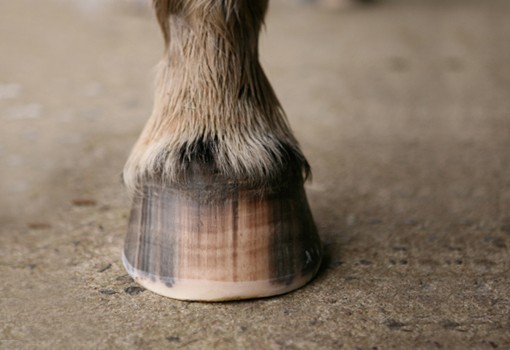Here is an excerpt from another fantastic article from The Horse’s Hoof archives. This article helps show that several elements are required to be successful at keeping your horse barefoot. Please read it with an open mind.
Going Barefoot
One of the biggest misconceptions is that taking a horse barefoot simply involves removing his shoes. Often, shoes have little to do with the situation, on a whole. Horses without shoes are sometimes (or often!) in worse shape than the horses with shoes. Shoes are usually just a scapegoat for the underlying problem.
It’s Hard to Tell the Truth
People do not like to hear honesty, when it does not flatter them. The truth is, out of ignorance, most owners have no realization that they are being negligent in their horse’s care, and that is why their horse’s feet are in such poor condition. Even worse – most owners do not even see that the hooves are in such bad shape!! No one will point it out to them unfortunately, vets and farriers have looked at severely pathological hooves for so long, they actually consider them to be “normal”. Owners are left in the dark, thinking their horses have “good feet” until one day down the road, insidious lameness develops, even laminitis, founder and navicular. We are here to tell you that isn’t normal! And the hooves you see on a lot of horses are not healthy.

Regular Trimming & Living Conditions
Many owners do not schedule regular, consistent trimming appointments for their horses, and this lack of consistency only increases the hoof problems. In addition, there is often no thought given by owner to living conditions provided to their horses–and even if farriers notice the link between the poor hooves and the poor living conditions, they are usually hesitant to say anything to their customers. After all, the customer is always right, right? Wrong! The horse is always right, and he will tell you if you are willing to listen. Living conditions are the one element of the “trim” that is entirely out of the trimmer/farrier’s control, and is crucial for success.
Many people are unwilling to embrace natural hoof care simply because they do not want to come to terms with accepting the responsibility of their care’s effect upon their horses’ lives – for good and for bad. We are advocates for the horse, and the horse has needs that have little to do with what most owners have provided for them. It is time to change that.
Shari Murray

Customer Service
If you call the customer service help desk, you’ll probably get me on the phone! I process repairs, returns, credits and exchanges that come into EasyCare.




